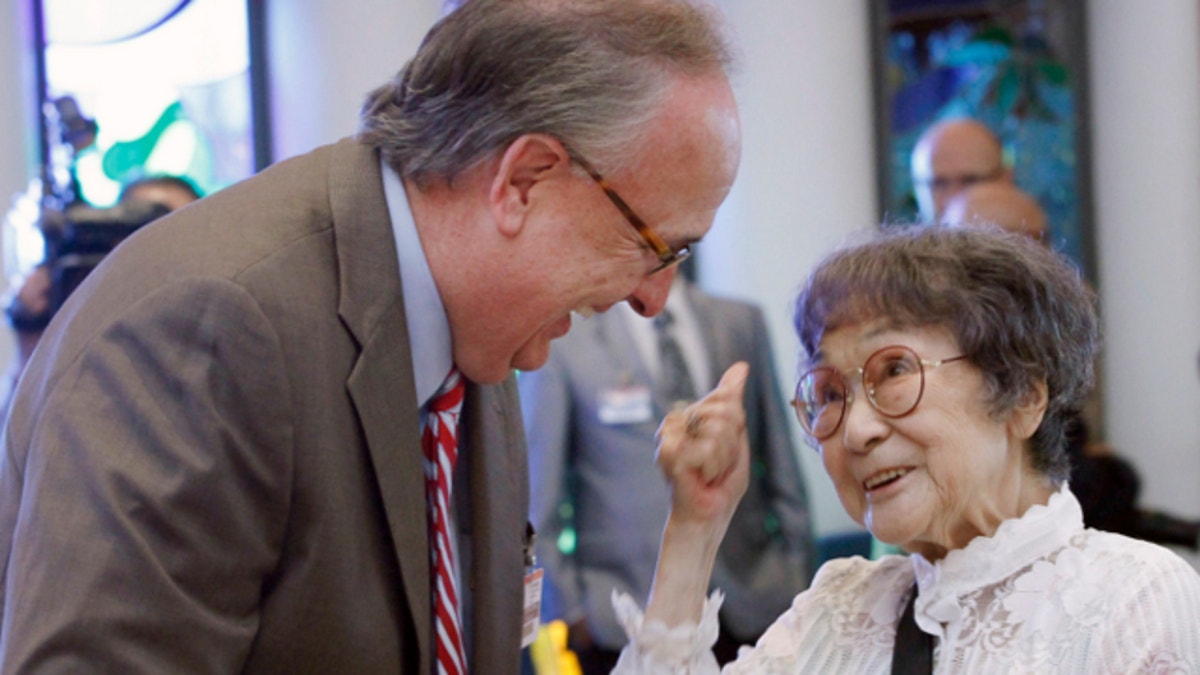
June 28, 2013: Survivor of atomic blast in Hiroshima, Kaz Sueishi, right, President of the American Society of Hiroshima-Nagasaki A-bomb Survivors, is greeted by Michael Hunn, Senior Vice President/ Chief Executive of Providence Health & Services, during a press conference in Torrance, Calif. (AP)
TORRANCE, Calif. – About 100 people who survived the atomic bombings of Japan in World War II will undergo medical testing to determine how they're doing seven decades later, and their experiences may help those exposed to radiation by the 2011 Fukushima nuclear power plant meltdown, experts said Friday.
Survivors who now live in Southern California will be examined by American and Japanese doctors on Saturday at Providence Little Company of Mary Medical Center in Torrance.
Since the 1970s, they have been taking part in a long-term study on radiation effects.
An estimated 200,000 people died from blasts, burns and radiation during and after the U.S. bombings.
Studies show survivors—known in Japan as "hibakusha"—have suffered higher-than-average rates of cancer, tumors, anemia, cataracts, and illnesses such as cardiovascular disease and benign uterine tumors. However, doctors cannot definitively link all such illnesses to the radiation exposure.
One of the patients being surveyed is 86-year-old Kaz Sueishi. When the bomb dropped on Hiroshima Aug. 6, 1945, she was 18 years old living with her parents, who ate an "American style breakfast every day."
Every day during the war, B-29 planes flew overhead, and she'd come to admire them, Sueishi said. On the morning that the bomb dropped, she was lingering in the Japanese garden in front of her home, admiring the clear day.
"The B-29 was the most beautiful, beautiful airplane. I used to nickname it as angel," said Sueishi. "That morning, in the beautiful blue sky, the silver-colored angel was flying. I said, "Good morning, angel."
The first atomic bomb ever used in war was dropped about two miles away from her home that morning, causing widespread devastation. In the years since, she's submitted to testing to help researchers better understand the aftereffects of the bomb and has become the President of the American Society of Hiroshima and Nagasaki A-Bomb Survivors.
When asked the secret to her long life, Sueishi said, "Love and forgive. Peace and love. Very simple."
Researchers hope the program may help as Japan deals with more recent nuclear disasters. A tsunami and earthquake in March 2011 touched off meltdowns and explosions at the Fukushima Dai-ichi plant, northeast of Tokyo, causing extensive damage and massive radiation leaks.

